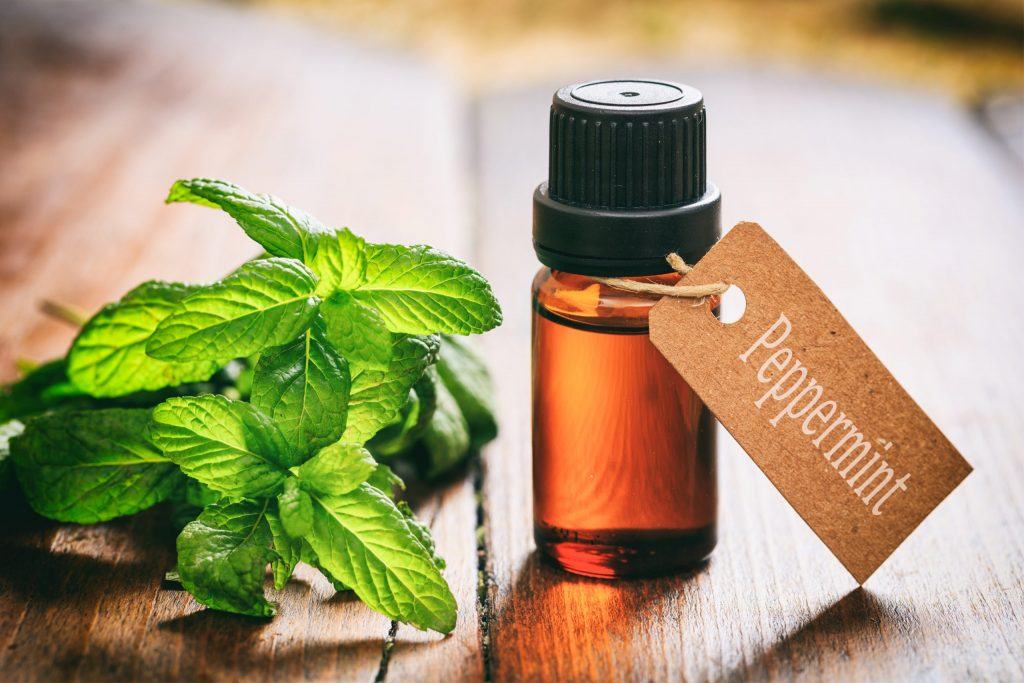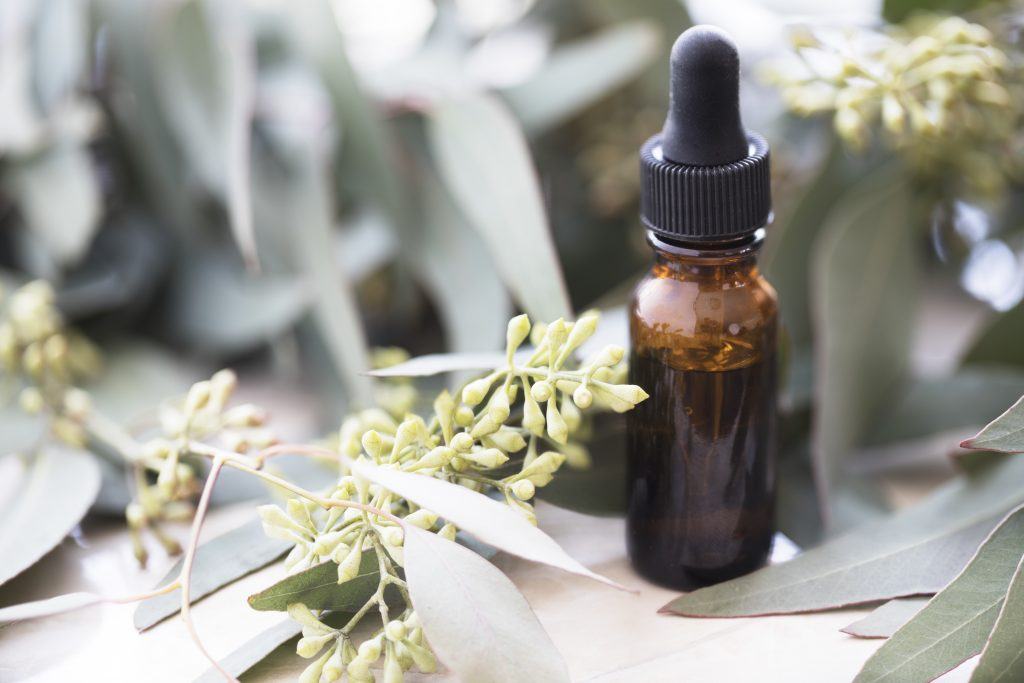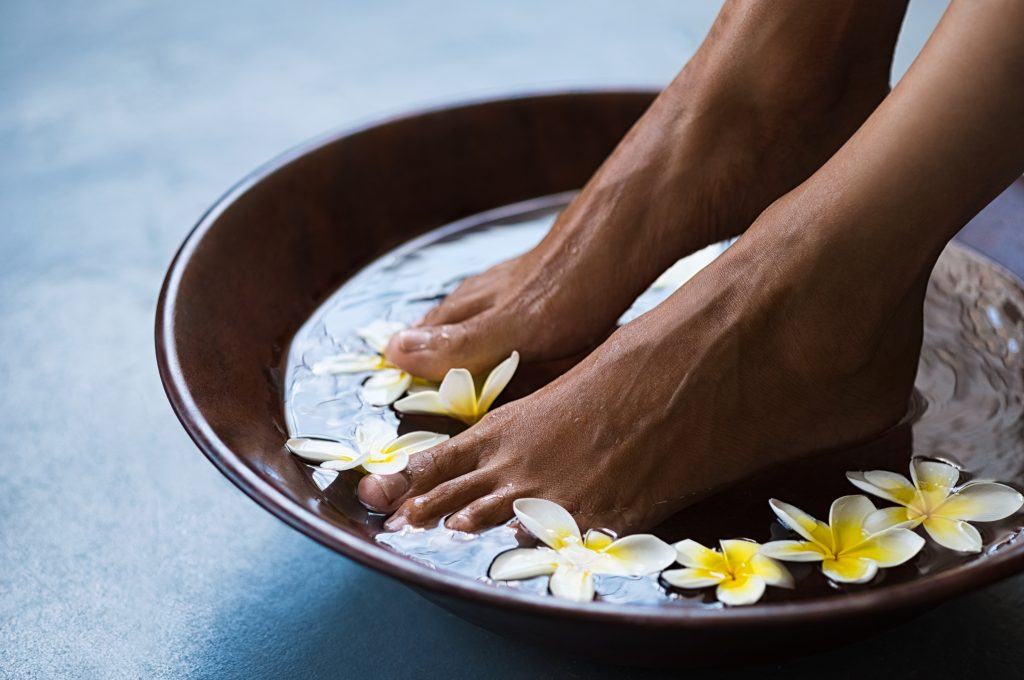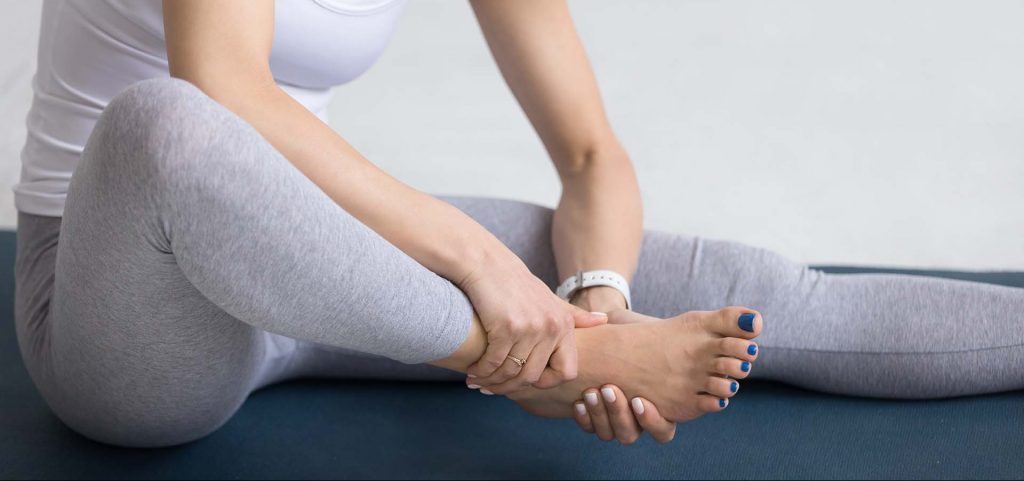Whether you’ve just completed a long hike or you regularly spend long hours working on your feet, foot pain is something we have probably all experienced at some point. It’s uncomfortable, debilitating, and downright frustrating! Since we don’t all have someone who can give us a nice foot massage, we can use essential oils to assist in finding some relief from achy feet.
In this article, we will go through the problems we face with aching and sore feet, along with some possible underlying causes. Then we will share some of the essential oils that can be used for several different foot conditions that can cause soreness. Lastly, we will go through the process of setting up an essential oil foot bath and share some other sore feet remedies.
Table of Contents
The problem: aching and sore feet
A variety of issues can cause sore and aching feet. Some, of course, are more serious than others. Anything from bunions to calluses to plantar fasciitis to simple overuse can cause discomfort and pain in the feet. However, if you find yourself faced with severe pain or swelling, oozing pus, signs of infection, or are unable to walk or put weight on your feet, be sure to seek immediate medical attention.
If you are just suffering from something simple, you can try essential oils to achieve some relief. Below are some of the best essential oils for common conditions that can be mild enough to be treated at home.
The best essential oils for aching and sore feet
So let’s get right down to it! Which essential oils are the best for sore and aching feet? Here are a few that are commonly used:
Peppermint Essential Oil

This essential oil has a stimulating and robust scent but also is frequently used topically for muscle aches, inflammation and pain, skin irritation, and more! Peppermint is a cross between two types of mint (water mint and spearmint) and grows across North America and Europe. Mint itself has been used for several thousand years, with mentions of it found in ancient Greek, Roman, and Egyptian texts. Both the oil and the leaves can be used medicinally, but also for food flavoring and scenting soaps, and other bath products.
Since this oil has been used for inflammation, this may help alleviate your foot-related aches and pains as well. As a bonus, this oil has a powerful scent to help combat foot odor. Linked is our favorite peppermint oil.
Eucalyptus Essential Oil

Eucalyptus essential oil is distilled from the eucalyptus globulus type of the eucalyptus tree, which is natively found in Australia. This tree still grows predominately in Australia but has also spread to other parts of the globe. Eucalyptus essential oil is widespread in use as well. It can be diffused to assist with seasonal allergies, used to relieve symptoms of athlete’s foot, and more! Check out our favorite eucalyptus essential oil here.
The active chemical compound eucalyptol is a terpene found in eucalyptus that is thought to be responsible for many of its benefits. Eucalyptol has been shown to have anti-inflammatory effects on the sinuses and the lungs as well as the skin, which indicates that it may have positive results for treating foot pain.
One study conducted by the University of California at Irvine Medical Center produced results that showed that eucalyptus essential oil could produce pain-killing results. Subjects who were tested with eucalyptus essential oil showed physiological signs of reduced pain, meaning that eucalyptus may be a good option for pain relief.
Eucalyptus essential oil can be used for foot pain with a soothing foot soak or applied topically when mixed with a carrier oil. Eucalyptus’s antimicrobial activity may also assist with any other potential bacterial growth hiding out on your feet.
Rosemary Essential Oil
If you have a Rosemary plant, you probably already know how easy this plant is to grow and maintain. Rosemary is a common culinary herb, but also has uses in essential oil practice. One study found that rosemary essential oil was effective at improving cognitive function while presented with simple tasks.
In other studies, trial participants reported feeling fresher after inhaling Rosemary essential oil and showed altered vital responses and alpha wave responses. In addition to its potential cognitive benefits, Rosemary has also been shown to help with muscle and joint pain, which may make it perfect for use on the feet. Check out this incredible oil here.
Thyme Essential Oil

Thyme is another plant you have probably already heard of if you are a culinary aficionado or just a lover of tasty food! Thyme is another plant that hails from the Mediterranean region and has been used throughout history for culinary and medicinal purposes but also used for embalming. Thyme was likely used throughout history because it has observed antibacterial, insecticidal, and anti-fungal properties.
The chemical components of thyme called thymol and carvacrol are most likely responsible for its antibacterial properties. Studies have even shown that thymol could assist with preventing resistance to commonly used antibiotics like penicillin. This finding is important because, as doctors prescribe common antibiotics, bacteria continue to evolve to resist the antibiotics. It is promising that thymol is offering a possible natural way to combat bacterial mutations.
As for how these benefits translate to feet, some benefits of thyme are considered to be anti-inflammatory as well. You can dilute this essential oil with your favorite carrier oil and apply it directly to the feet to enjoy its soothing anti-inflammatory benefits as well as potential antimicrobial benefits! Check out our detailed guide on thyme essential oil to learn even more about this powerful essential oil! Also, check out our favorite thyme essential oil here.
Lavender Essential Oil

Although there is little scientific research that produces definitive results on lavender essential oil, it is commonly believed to help with anxiety and reduce pain because of its relaxant effect.
Lavender essential oil has been in use for thousands of years medicinally to boost appetite and mood as well as for gastrointestinal issues and anxiety. The ancient Egyptians even used lavender as part of the mummification process.
Some studies showed how inhaling lavender essential oil reduced heart rate, blood pressure, and skin temperature significantly. Some individuals may experience skin irritation when using lavender, so be sure to test a small area of skin before using lavender essential oil. Additionally, it is crucial to make sure that you are using a carrier oil to dilute the potent essential oil. Although lavender is generally considered to be safe when applied topically, you should always mix it with a carrier oil and patch test until you know its effects on you.
Essential oils for neuropathy

Peripheral Neuropathy is a medical condition in which damaged nerves cause pain, weakness, and numbness in the feet, hands, and other areas of the body. This uncomfortable condition has a wide variety of symptoms but is typically characterized by numbness, extreme sensitivity, and a variety of pain types. Commonly associated with diabetes, this painful condition requires professional medical treatment.
There is evidence that there are some natural remedies that can be used in conjunction with modern medicine to help alleviate some of the symptoms of this illness. Evening primrose essential oil has been shown to reduce some of the symptoms of mild to moderate peripheral neuropathy. In one study, evening primrose essential oil was used in conjunction with Vitamin E and given to patients orally to assess its effects on the symptoms of peripheral neuropathy. Amazingly, the test subjects all showed reduced symptoms while taking vitamin E and primrose essential oil capsules.
You can purchase primrose essential oil suitable to take orally to treat peripheral neuropathy symptoms, but keep in mind that even though this is a natural treatment, side effects like upset stomach and nausea have been reported. Evening primrose oil is additionally not suitable for individuals with mental illnesses like Schizophrenia, as it may trigger an episode.
Bergamot essential oil is another oil that is recommended for treating peripheral neuropathy but is most efficacious when used topically. Bergamot is thought to be effective as an analgesic and anti-inflammatory because it contains the chemical compound linalool. Mix a few drops of bergamot essential oil with your carrier oil of choice and apply it to the affected area for relief.
Essential oils for muscle pain & sore muscles

Sometimes the reason for sore feet is that we have referred pain from another area of the body. Maybe the muscles in your feet are just tired! Muscular pain can have this effect and create the need for treatment with one or more of the essential oils that are good for sore muscles.
Eucalyptus essential oil is one of the oils that has shown promise in aiding with muscular cramps and pains along with joint-related pain. We chatted about this essential oil above, but this essential oil is best used either as a soak or topically mixed with a carrier oil.
Other essential oils have produced promising results for muscle pain and may be used topically. These include roman chamomile, lavender, and clary sage. For the ultimate cocktail of pain-relieving essential oils, try mixing a few drops of each of these essential oils into your favorite carrier oil and massaging it into the affected area for relief. Keep in mind that all essential oils should be tested on a small area of skin first to make sure that you don’t experience any adverse reactions.
Essential oils for plantar fasciitis
If you’ve ever experienced plantar fasciitis, you know how painful and debilitating that it can be. Plantar fasciitis is a condition in which the thick band of connective tissue that runs along the bottom of the foot gets swollen for a variety of reasons and is often characterized by a sharp, stabbing pain toward the heel. Individuals who struggle with this condition chronically often look for more natural ways to ease the pain. Luckily, several essential oils may help with providing relief!
Lavender essential oil is one of the most promising oils to provide relief. In one study, lavender essential oil was tested in conjunction with the popular pain-relieving drug tramadol. Lavender offered relief that was comparable to that of tramadol, which is a significant finding. Lavender essential oil is generally considered to be toxic for oral consumption but can be used topically in conjunction with a carrier oil to provide relief for symptoms.
Frankincense essential oil is another option for plantar fasciitis. Inflammation, such as that which occurs in plantar fasciitis, is the result of leukotrienes. Without getting too in-depth on the function of leukotrienes, they are responsible for triggering inflammation responses in cells by encouraging swelling and/or production of mucus. Frankincense has been shown to inhibit the function of leukotrienes, making it possible to reduce inflammation in the feet that causes plantar fasciitis. To use this essential oil, mix a few drops of this with other essential oils that you might want to use as well as a carrier oil, and massage it into the bottom of your foot. Check out our detailed guide on frankincense essential oil to learn more about its incredible benefits!
Other essential oils of note for use with plantar fasciitis are peppermint essential oil, basil essential oil, eucalyptus essential oil, and ginger essential oil. These can all be used topically in conjunction with a carrier oil to experience relief from symptoms. Give these essential oils a shot the next time you experience symptoms of plantar fasciitis.
Essential oils for swollen feet

Use caution when approaching home treatment of swollen feet. Swollen feet can often be an indicator of a more severe condition like congestive heart failure, kidney failure, cirrhosis, and more. If you think that you may have one of these more serious conditions, do not attempt to treat swollen feet with essential oils and seek the advice of your physician before using essential oils.
For mild swelling of the feet, we can leverage one or more of the essential oils with anti-inflammatory properties to create a relaxing soak, scrub, or oil blend.
Ginger essential oil is known to both increase circulation and decrease inflammation, making it a fantastic choice for individuals dealing with swollen feet. Highly concentrated ginger extract has been tested on individuals with osteoporosis and achieved excellent results. Using ginger essential oil on your swollen feet may result in a similar reduction of inflammation. This essential oil can be used topically as well.
Other essential oils of note for swollen feet include lavender, eucalyptus, and peppermint essential oils.
Setting up an essential oil foot bath

One option for treating sore feet that is both relaxing and soothing to sore feet is an essential oil foot bath. We’ll go through how you can make your own essential oil foot bath at home and some of the benefits associated with it.
Process
This foot soak is both calming and uses several different plants that have healing benefits for the feet. You will need five drops of lavender essential oil, 1 cup of Epsom salt, six chamomile tea bags, and three tablespoons of raw honey. Start by adding boiling water to your chosen foot basin and letting the chamomile tea bags soak for 5-10 minutes.
Mix the lavender essential oil with the Epsom salt in a bowl, then add it to the water after the chamomile tea is done steeping. Add the honey, then make sure that all of the ingredients are dissolved, and the water is cool enough to put your feet in without burning them. Soak for 20 minutes, then dry. Keep in mind that if you are using this soothing soak to assist with swollen feet, you may want to wait for the water to become cool before soaking your feet. The swelling will go down more with cool water versus warm water for pain and muscle soreness.
Benefits
You probably noticed that we didn’t just use essential oils above. We did take advantage of chamomile, which we know assists with muscle soreness. We also used Epsom salts and raw honey, which are soothing for pain and moisturizing to the skin. We used lavender essential oil because, on top of having anti-inflammatory benefits, it also has aromatherapeutic benefits! You will finish this foot bath feeling relaxed with soft, soothed feet. This type of foot bath is a great way to end a long day and treat yourself!
What other sore feet remedies exist?
Essential oils aren’t the only option out there for relieving sore feet, and what matters at the end of the day is that your experience relief most effectively and safely as possible. Here are a few other options that you can try for relieving sore feet.
Moist Heat
Sometimes your feet are just sore because of the excess activity or weight-bearing! One way to get some relief would be to try a relaxing foot bath like the one we described above. Additionally, You can also moisten a towel, pop it in the microwave for 30 seconds, then wrap it around your feet for some relief. Please be cautious of not overheating your towel.
Stretching

Stretching can be a great way to relieve tension in the feet! One easy stretch is to stand on a stair with your heels hanging off (while holding on to something, so you don’t fall backward, of course!) and feel the stretch that occurs on the bottom of your feet. You can also sit back on your heels with your toes tucked under to experience an intense stretch on the bottom of the feet, which is excellent for keeping the fascia from becoming inflamed.
Improve your shoes
Shoes can be the culprit for foot pain more often than not. Are you spending your days in heels or shoes that aren’t good for your feet? If this is the case and it is unavoidable, consider adding arch supports to make your feet a little bit happier. If you can wear different shoes, consider something with more cushion so that your feet are protected as you walk on them all day long.
You might even need to improve your feet as well! Bunions, corns, and calluses can cause you to walk in ways that are not good for your feet. You might see improvement if you take the time to shave down calluses and corns or get a pedicure from a professional.
Over the counter medication
There is always the option to treat foot pain with medication like acetaminophen, but keep in mind that this is only treating a symptom of the problem. Things like stretching and improving your shoes can attack the problem and prevent you from experiencing foot pain altogether!
If you are experiencing persistent or severe pain in your feet, seek the help of a medical professional before treating it with essential oils. Since inflammation in the feet can be a sign of other serious conditions, it is best to make sure those are ruled out first. Use your best judgment when using essential oils for sore feet, and you will have a great experience!

